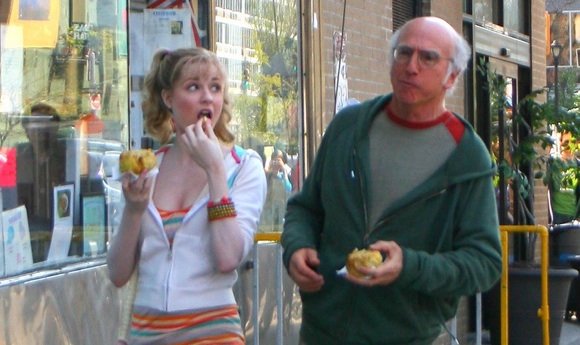
 I've lost count as to where we are in the Harry Potter franchise, but it seems like we must, ever so slowly, be nearing the end.
I've lost count as to where we are in the Harry Potter franchise, but it seems like we must, ever so slowly, be nearing the end.The latest film - The Half-Blood Prince - teases us with yet further revelations about the nature of Tom Riddle / Voldemort, as well as introduces the devices by which he'll need to be defeated (called Horcruxes, these are objects into which Voldemort has placed a portion of his soul, making him immortal as long as the object exists.) The film also exposes the ultimate allegiance of some of the enduring characters, and propels Harry into the leadership position that he'll need for the final confrontation of Voldemort.
All of which is to say, the film is entirely preparatory for the ending - and though it is directed with aplomb by David Yates, this is rather thin gruel for entertainment.
The fault could simply be the length of the series, which is starting to look a bit long in the tooth, especially as the three principals have far surpassed the adolescence that they're supposed to be exploring in this movie. All the sudden randiness amongst the kids left me with a rather icky feeling - and the effect of twenty-two-year-old actors (whom we've watched in these characters since they were children) pretending to be horny seventeen year olds is disconcerting, if not downright weird.
The real stars of this film - Michael Gambon as Professor Dumbledore and the ever delicious Alan Rickman as Professor Snape - carry along their scenes with appropriate scenery chewing dialogue, but the film bogs down whenever Harry and friends make way with the primary screen time. I imagine that the sudden blooming of teenage lust as Harry and Company find themselves on the verge of graduating from childhood was much more appropriately fairy-tale in the books than in the film, which stoops to the most unfunny of teen-movie tropes to make its points.
What we have in the story of the Half-Blood Prince is a pivotal turning point in any young person's life - the point at which childhood must end, when mentors and adults must inevitably be insufficient, and we must learn to make our own way in the world: facing for ourselves all the trials, wonderfulness and danger of both love and death, loyalty and courage, leadership and allegiance. Facing them finally without the teachers who have gotten us to the verge of adulthood.
This is a profound and unique time in anybody's life, but unfortunately, The Half-Blood Prince fails to capture the dramatic feeling of such a moment. Instead, we get excerpts of other summer movies, long episodes of comical lust, and short scenes of confrontation that should have been pivotal instead of thrown-off.
Yates does a great job of making the visuals ever fascinating, and of revealing what we'll need to know for the final treasure hunt and battle. But as for explaining the feeling of the film - and what I imagine was the underlying appeal of the books - I'm afraid this movie rings hollow.










